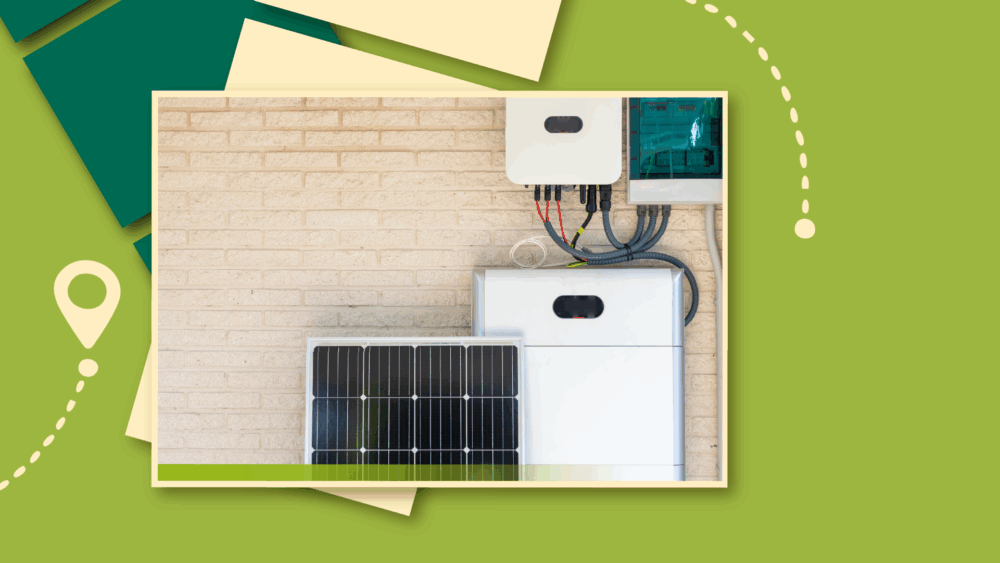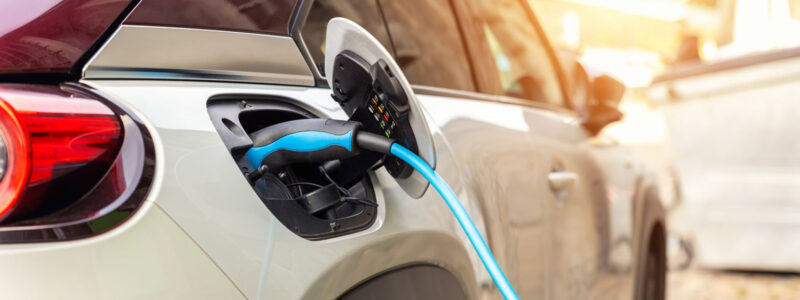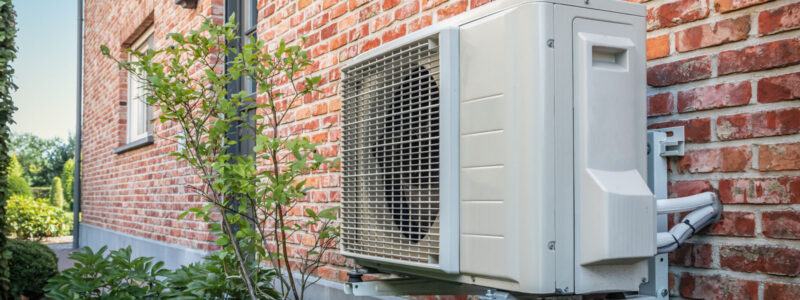A home battery is an increasingly popular way to reduce your bills by creating a smarter, more flexible energy system at home.
What are home batteries?

A home battery is a device that stores electricity in your home, converting it back into energy when needed.
If you have solar panels, batteries can help make the most of your panels by storing any excess energy for when you need it. Batteries can also be charged directly from the grid; this means you can use a smart tariff to store electricity off-peak, when it is cheaper, for later use and avoid using electricity directly from the grid when it is more expensive.
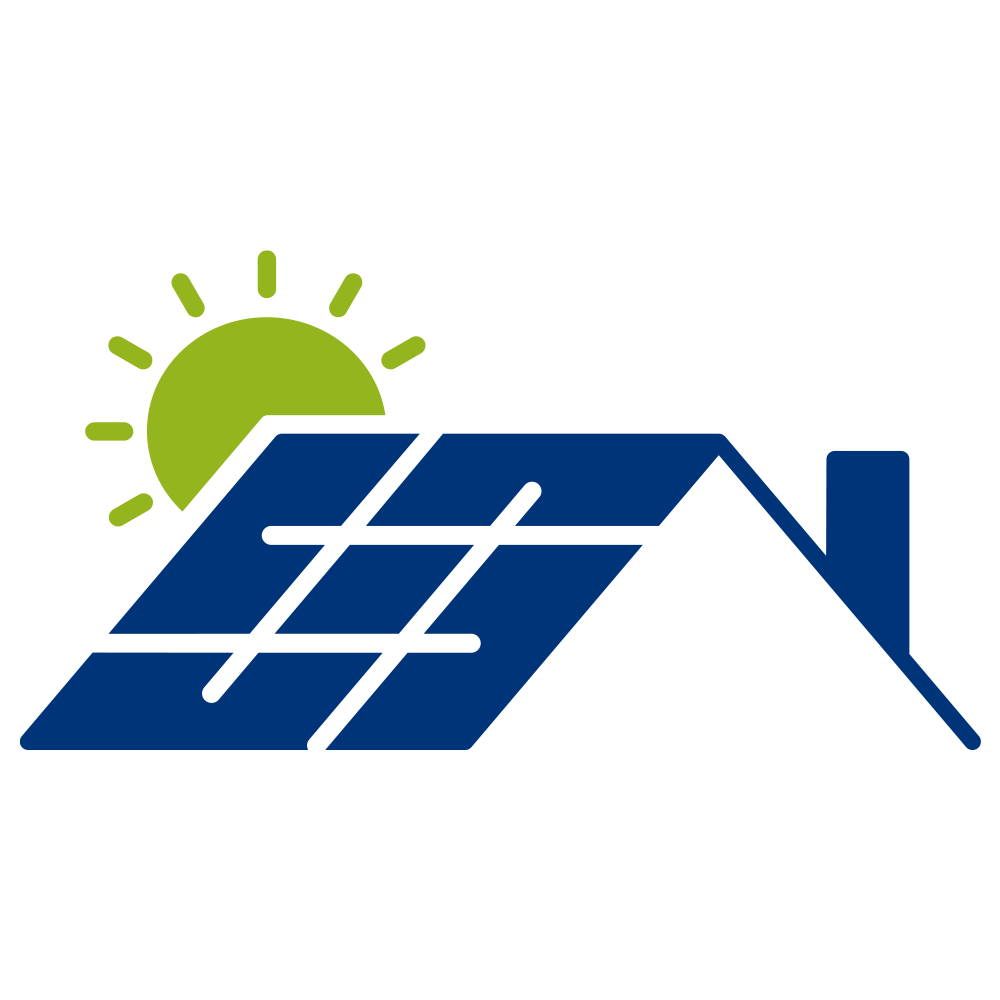
Use your own power
Store electricity from your solar panels and use it when you need it, reducing your reliance on the grid
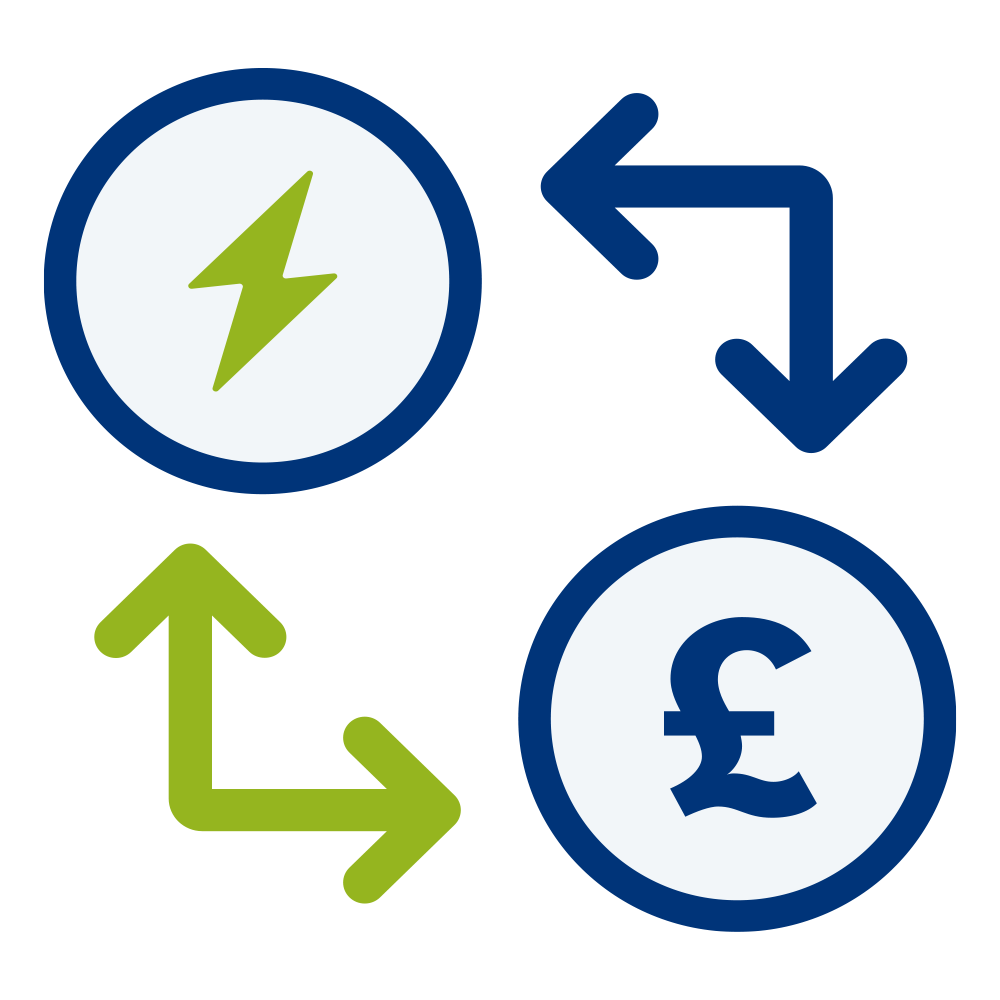
Sell excess energy
Earn extra income by selling electricity you don’t use back to the grid

Lower your bills
Charge your battery with a smart tariff when electricity is cheaper and use it when prices are higher

Take control
Manage your electricity use more easily with smart apps, timers and flexible tariffs
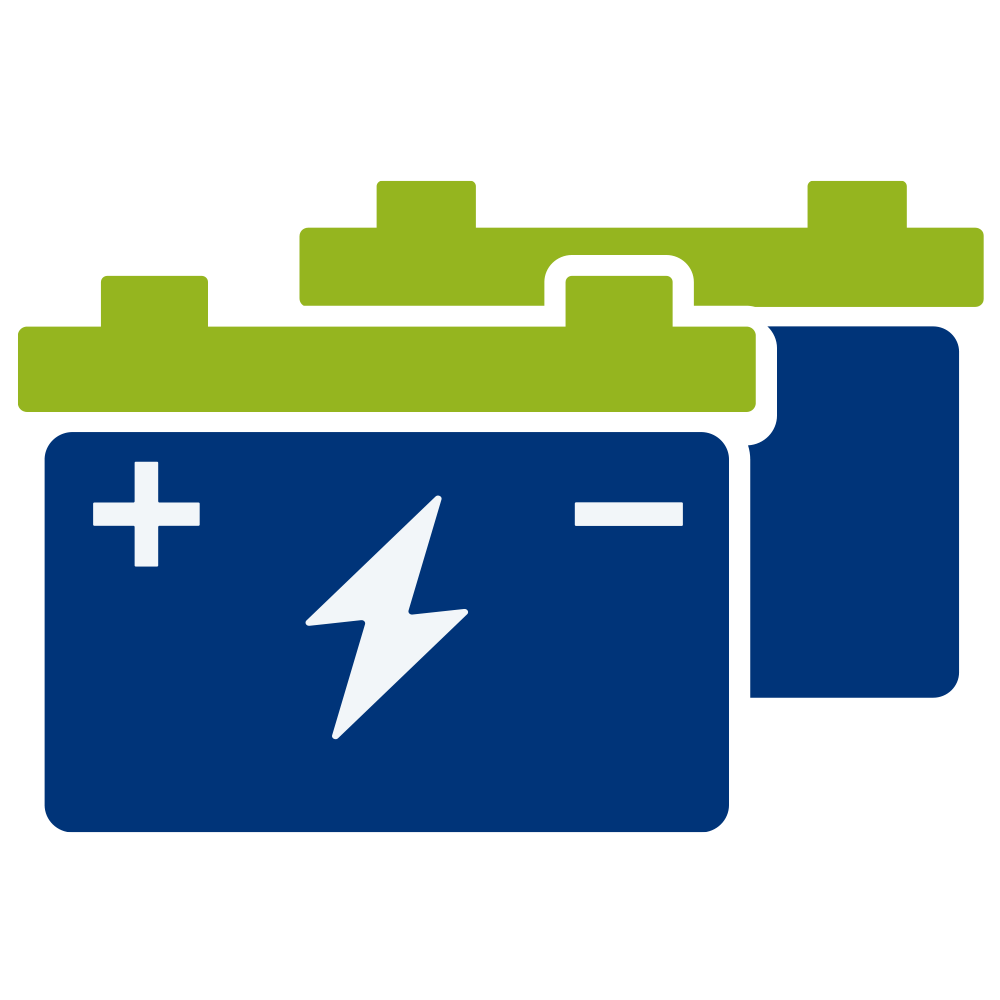
Support cleaner energy
Charge your battery when the grid has ample supplies of renewable energy

Cut your carbon footprint
Help to reduce peak demand on the grid, helping it rely more on renewables and less on fossil fuels
Financial help for adding batteries to your home
Exempt from VAT
Home battery installations are exempt from VAT until 31 March 2027. This applies to batteries installed with an energy-saving device like solar panels, as well as batteries installed as a standalone technology.
Warm Homes: Local Grants
Funding for eligible local authorities to deliver energy performance upgrades for low-income households living in privately owned homes. Apply for the Warm Homes: Local Grant to improve a home – GOV.UK.
Warm Homes: Social Housing Fund
This scheme supports social housing landlords to upgrade tenants’ homes with measures including solar panels. Anyone living in social housing can contact their landlord to check eligibility or visit GOV.UK for more information.
How batteries work with solar panels
Batteries are great with solar panels. They let you store the energy your panels generate during the day so you can use it later when the sun isn’t shining, such as in the evening or early morning. Using this stored energy often saves more money than selling extra electricity back to the grid.
If you are on a time-of-use tariff, batteries can help you avoid higher electricity prices by charging when rates are low and powering your home when prices are high.
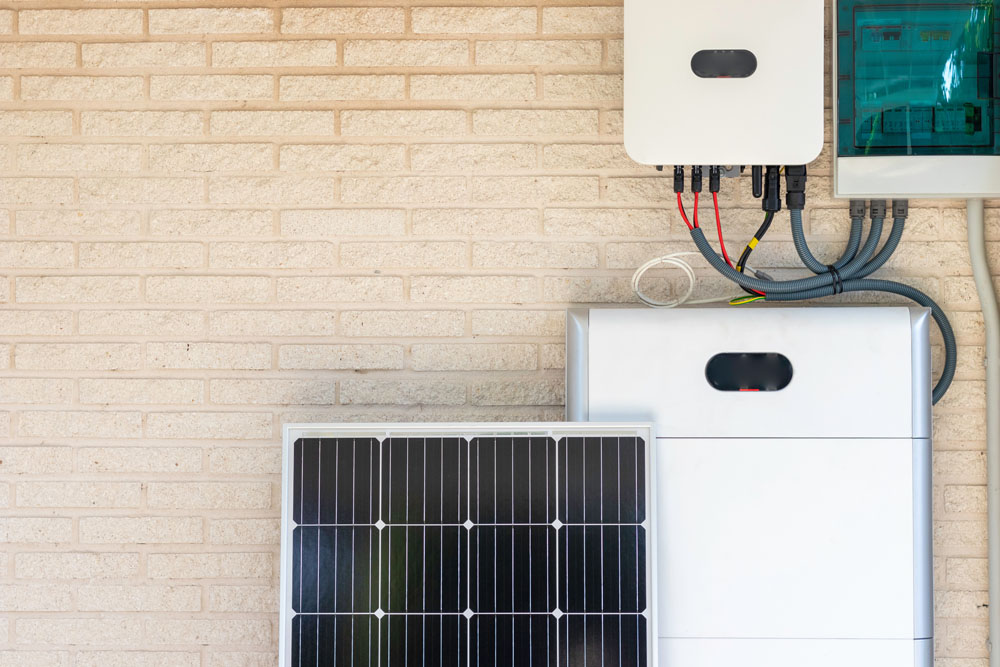
More information
The benefits of a battery depend on your circumstances, and the costs can be high. You should consider whether it’s right for you before making a purchase.
The Energy Saving Trust offers helpful information about home batteries.
How to get a home battery

Installing a battery
Usually the company or installer who is going to install the battery decides which battery is needed and where the home battery should be located.
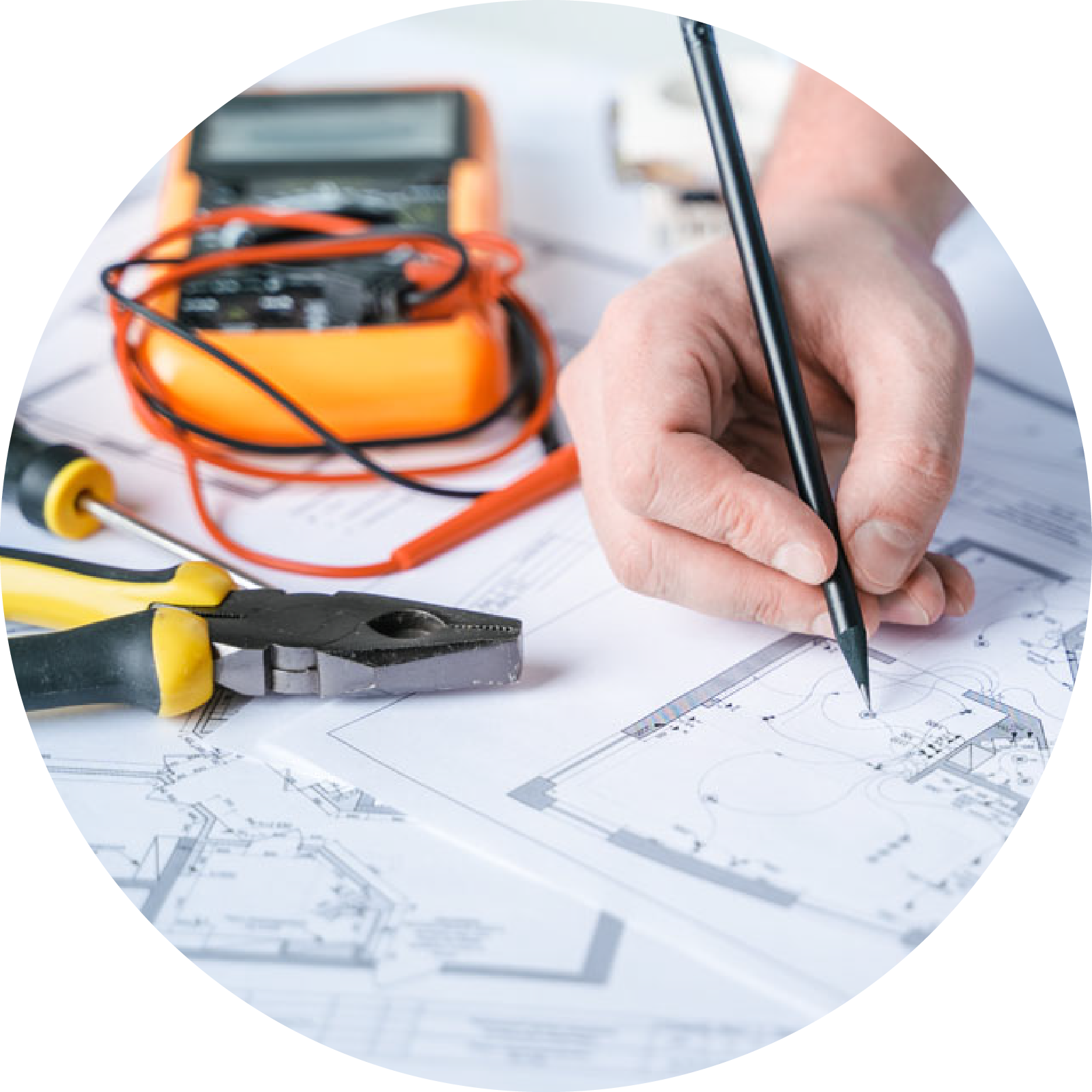
Register your battery
Planning permission is not generally required for home batteries but you should double check with your local council’s planning office. You or the installer will also need to inform your Distribution Network Operator (DNO) if you install a system that will connect to the energy grid.

Type of batteries
Batteries work by storing electricity and converting it back into energy when needed.
There are different types of batteries but the most common are lithium-ion. Lithium-ion batteries store and release energy through reversible chemical reactions.
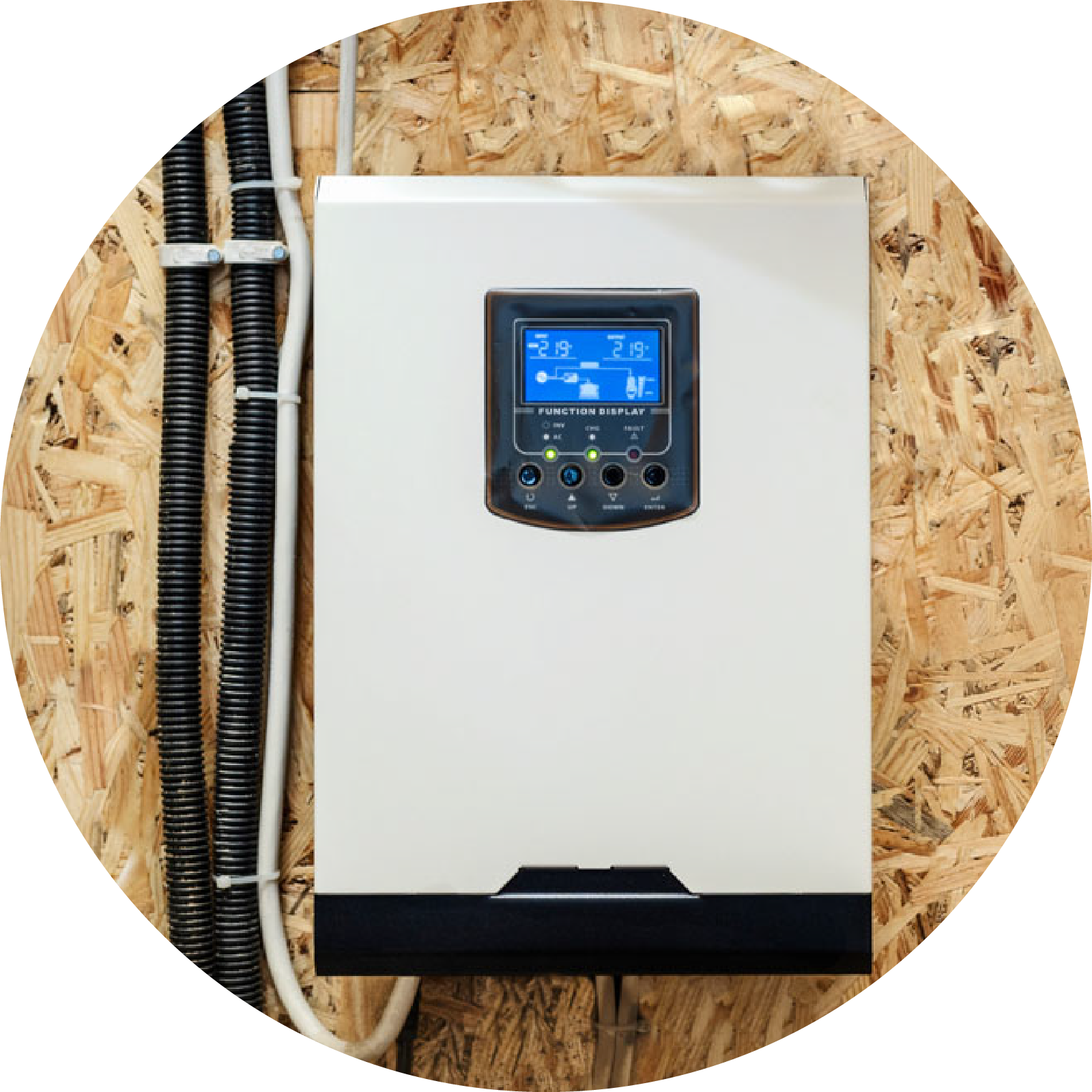
Curious about what else you can do to save energy?
Click below to learn more.
